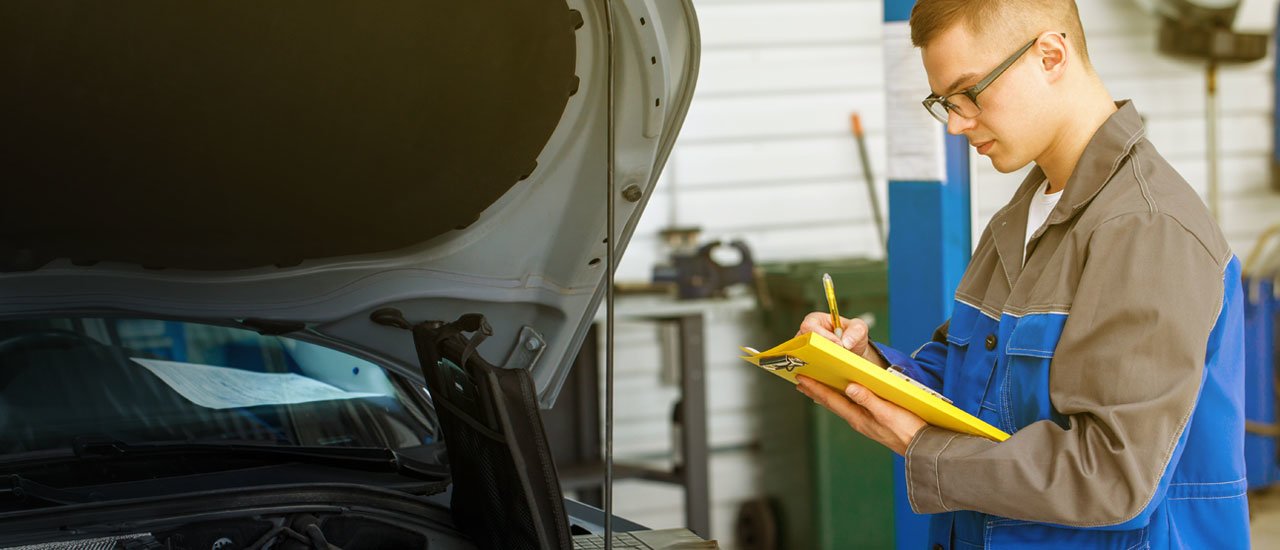MOT Check easy as 1,2,3 with Automyze
When is a car’s MOT due is one of the most important dates to remember but nearly a third of us forget our MOT date. Also often motorists believe that an MOT is a major overhaul that restores the car to near new, when really it is a check to see whether the car still meets the minimum standards of roadworthiness.
Many motorists are not aware of how to prepare for an MOT, what is written in the MOT advisory notes, or even previously failed MOTs which are stored against the MOT History for the vehicle.
Automyze has several useful tools to help
Find out your MOT expiry date
Use our handy free service to instantly check when your MOT is due. All you need is your vehicle's reg number.
Set up free MOT reminders
Never miss your MOT again. Also set up free reminders when your road tax, servicing, insurance and more are due.

View your MOT history and past advisories
Check out your MOT history, any outstanding advisories that need attention and easily get a quote for any work needed.

Check for common
MOT test failure reasons
We've created a handy tool that allows you to see common MOT failures for your vehicle's make, model and year.

- number tested
- 752
- pass rate
- 89.2%
Recommended areas to check
- brakes
- 74.6%
- seatbelts
- 19.4%
- steering
- 6.0%
Top ten pre-MOT tips
Top tips to help you avoid some of the most common MOT failures.

2. Brake lights
For this you will need someone else to help and stand at the rear of the car while you press the brake pedal. Do they light up? Do they turn off once your foot is released? Also don’t forget the additional brake strip light, if you have one. Alternatively, you could carefully reverse up to a reflective surface and check in your rear mirror.
3. Number plate
Is it clean? Cars can fail due to the number plate being dirty or unclear to read. Just a quick wipe with a cloth could be the difference between a tick and a cross. Although none of this matters if the font and spacing of the letters doesn’t comply with legal requirements, so make sure your number plate is from a DVLA approved supplier.
4. Wheels and tyres
Do they meet the minimum legal tyre tread depth? 1.6mm is the legal limit, anything less than that will be marked as ‘fail’. If in doubt a technician at your local garage will be able to check for you and also advise on the correct replacement if need be. Alternatively you can check out ourcommon MOT fails and how to avoid them.
5. Seats and seatbelts
Does the driver’s seat adjust forwards and backwards? Are all seatbelts in good, working order? Pull out the length of the seatbelts to inspect them for damage and tug hard to test they react as they should if you were to brake hard. This could not only mean the difference between a pass or fail, but also life or death.
6. Windscreen
Is there any damage? Any damage larger than 40mm or wider than 10mm in the area in front of the driver will cause a fail.
7. Windscreen wipers
Do they wipe your screen clean? Any tears or holes in the wiper rubber will cause a fail. Find out how to replace a windscreen wiper with our simple to follow instructions.
8. Screen wash
Is the washer bottle topped up? If you don’t have any screen wash left, top it up with some water. Something as simple as this could mean the difference between a pass and fail.
9. Horn
Does it work? If not you will need to get it repaired or replaced.
10. Fuel and engine oil
Do you have enough of each? You could be turned away from an MOT without suitable levels as the tester will need to run the car to test it’s emission levels. If you are unsure about the type of oil that should be used, ask your manufacturer main dealer.
Common MOT questions & answers
Answering some of the most common questions about MOTs
What is an MOT?
The MOT is very simply the collective name given to a number of checks and tests that must be done on most cars once a year by law. It was original called the Ministry Of Transport test but was soon shortened to, and is commonly referred to as, the MOT or MOT test. The test only applies to cars 3 or more years old and covers a number of different aspects of the vehicle. Read more
When Does A New Car Need Its First MOT?
When driving your new car off the forecourt, its road-worthiness isn’t (and shouldn’t be) at the forefront of your mind. We all assume a new car’s safety – it’s a good reason to buy a new car. Your car is obliged to have its first MOT after three years. Before then, there is no legal obligation to undergo testing. Check when your vehicle was registered for the exact date you’ll be due a test. Read more
How Long Does an MOT Take?
An MOT test should normally take between 45 minutes and an hour depending on the garage and the technician. It is always advisable to allow at least an hour for the test in case there are some parts of procedure that have to be done more than once or re done to get correct results. Read more
How much does an MOT cost?
The maximum cost for a standard car MOT test is £54.85 and the customer does not pay VAT on top of this cost. The cost is the same for vans and motorhomes and only increases for passenger vehicles with more than 16 seats and busses. Read more
Can all garages do an MOT?
Not all garages are able to offer MOT tests. To be able to perform an MOT the garage and technicians must be authorised to do so by VOSA (the Vehicle and Operator Services Agency). All authorised garages can be found online but should also clearly show the 3 triangle blue MOT test logo. Read more
What happens if my car fails its MOT?
If a car fails the MOT test the customer will be issued with a refusal notice with a list of the issues that need to be addressed. If the garage performing the test is able to offer repairs then it is the norm to book the car in for those repairs immediately with a view to retesting the car as soon as possible. There are some MOT centres, however, that are not able to offer repair work and the customer will need to take the car elsewhere for the remedial work. Read more
Find your best garage for your MOT on the Garage Guide from the AASearch our network of over 4000 great garages and book online today.
What is the Garage Guide?
Finding a great local garage can be a real challenge so we’ve launched the Garage Guide to champion the UK’s best independent garages and official dealerships who operate to the highest standards. Search and book online at over 4000 garages.Championing expertise
Our Garage Guide champions garages that employ professionally registered technicians and operate their businesses to codes of practice endorsed by the Chartered Trading Standards Institute. Great garages and expertly skilled mechanics gives you confidence and assurance.

